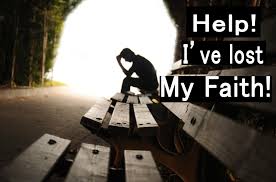A Letter To My Friend
Dear Lloyd,
How
are you my friend? Hoping this letter finds you in peace today. I am so happy
that you reached out to me with your concern. This is significant. Actually,
this is major – a big deal! For your concern deals with life and death. Still,
you’ve come a long way and I hope to encourage you on this Faith journey.
I see you have concerns about the existence of God – that you
see no evidence to support your Faith. I am sorry to hear that. I pray by the
end of this letter to have given you just a bit of information that may help
you with the answers you seek. I know you are a reasonable person, so let’s see
where the evidence leads. I know you have read the Bible before and in it you’ll
find proof of God’s existence, but I’d like to address your concerns from a different
angle.
Without a doubt, one of the best-known arguments for the
existence of God is that of the “Moral Argument”. Over your many years of life,
I am sure you realize that something inside of you differentiates between good
and evil, right and wrong. This is called Objective Morals. These are “values
we hold dear that guide our lives” (Craig, 172). If we start here, whether or not
you agree, there are some things that are just wrong, and it is so “independent
of what people think or perceive” (Craig, 173). Take robbing a store – If you
decide to do this, already you know that such an act is wrong. While there are
written laws on the books that punish such an act (confirming that robbing a
store is wrong), your conscience will tell you “Lloyd, this is wrong”. Tied up
in this Moral Argument are moral duties and moral values. Moral duties are
concerned with that which is right or wrong, while moral values concern that
which is good and bad (Craig, 172). During the time in which you had Faith, you
surely can remember an internal compass guiding your behavior. You relied on
that which was greater than you for discernment. That internal compass is God.
Here’s what philosophers call an ontological foundation in
support of the existence of God through the existence of moral values:


